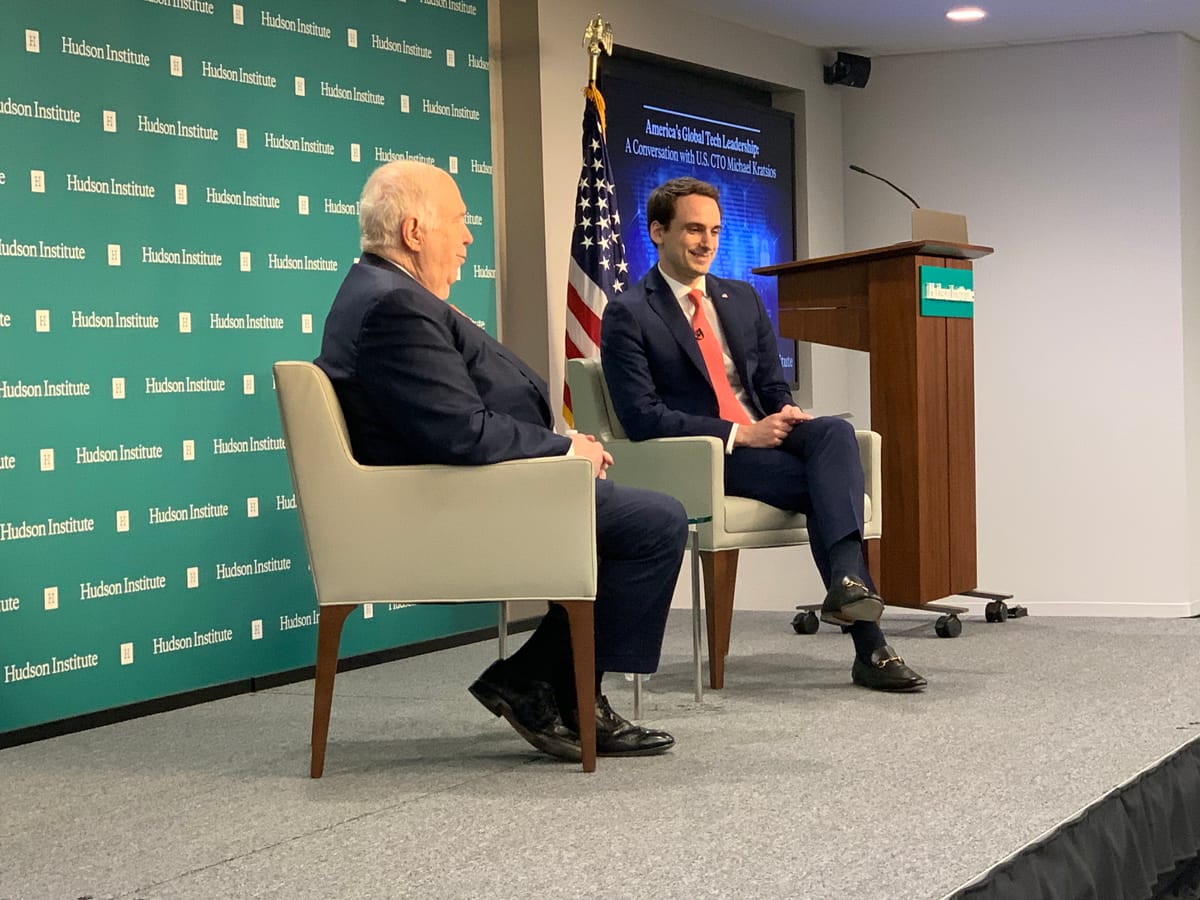U.S. Progress on AI and Quantum Computing Will Best China, Says CTO Michael Kratsios
WASHINGTON, February 21, 2020 – U.S. Chief Technology Officer Michael Kratsios expressed confidence in the supremacy of the U.S.’s artificial intelligence and quantum computing programs over China’s, in a talk at the Hudson Institute on Thursday. United States research on AI and quantum computing fe

WASHINGTON, February 21, 2020 – U.S. Chief Technology Officer Michael Kratsios expressed confidence in the supremacy of the U.S.’s artificial intelligence and quantum computing programs over China’s, in a talk at the Hudson Institute on Thursday.
United States research on AI and quantum computing features the “most highly cited papers,” “most investment by the private sector,” and greatest government funding, he said.
This assertion challenges the “Made in China 2025” Initiative, a 10-year plan that China issued in 2015, and which outlined 10 key tech industries in which China hopes to become a world leader.
Recent progress by the Chinese government in the field of high-speed fiber-optic broadband, AI and surveillance have fueled some analysts’ fears that the Chinese will hit their targets.
Kratsios laid out four key components of a winning tech strategy in which the U.S. excels: Leadership development, a low-regulatory environment, a belief in the power of the citizen workforce, and international engagement with allies.
Kratsios referenced two specific examples to bolster his argument. He mentioned how Trump committed to at least $200 million for STEM education last year, and how American corporations more than matched that figure by donating $300 million.
He also recounted the story that he said put America at the head of the pack in the “quantum supremacy” race. The story bears upon the uniting of resources invested by the U.S. government in the Quantum Lab at UC Santa Barbara with Google’s subsequent acquisition of the lab and connection of that research team to its treasure trove of resources.
It’s not a James Bond/Jason Bourne crossover, but the concept of “quantum supremacy” is vital for national security, Kratsios said. America has only achieved it through “a free market of ideas” involving prudent government investing and private sector intervention.
Governmental funding and R&D are unique in that they “fill the gaps” that the private sector doesn’t focus on.
Kratsios elaborated that the government tends to invest in “early-stage, pre-competitive R&D” which it expects the private sector to nurture and raise into a mature industry, such as in the case of the UCSB Quantum Lab.
Kratsios also made some comments on the proposals that the EU released Wednesday regarding AI and data. He characterized their approach to AI as “values-based,” and worried that they do not prioritize implementation.
Kratsios also found fault with the documents’ binary approach to classifying AI as high risk or not high risk, saying the report “clumsily attempts to bucket AI-powered technology” into two camps when there should be more “spectrum and flexibility in the model.”








